Allahabad, 9th August 2010: Celebrating Aisa’s 20 Year Legacy Of Resistance, Protest And Struggle
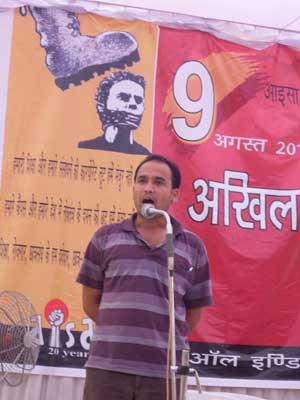 On 9th August, 1990, in the Union Hall of Allahabad University, the All India Students’ Association (AISA) was born. AISA emerged in a time of crises: the decade of the ‘90s saw both the beginnings of the neoliberal assault on people’s rights and livelihoods as well as the prominent rise of communal, chauvinist and casteist forces. In the face of these assaults, AISA established itself as a revolutionary student front that has taken forward the struggle for student rights and also allied itself with democratic movements across India and the wider world.
On 9th August, 1990, in the Union Hall of Allahabad University, the All India Students’ Association (AISA) was born. AISA emerged in a time of crises: the decade of the ‘90s saw both the beginnings of the neoliberal assault on people’s rights and livelihoods as well as the prominent rise of communal, chauvinist and casteist forces. In the face of these assaults, AISA established itself as a revolutionary student front that has taken forward the struggle for student rights and also allied itself with democratic movements across India and the wider world.
On 9th August 2010, AISA organized an ‘All India Student Convention’ to commemorate and celebrate the completion of twenty years since the founding of AISA. The aim of this Convention was to bring together students from different corners of the country, to engage with culture and ideas, and 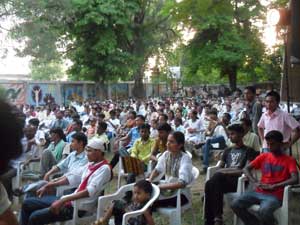 to understand what kinds of possibilities may be held out for the student movement in the future. The Convention took a strong stand against the corporate loot of resources and education and the repression being meted out on democracy in campuses and throughout the country.
to understand what kinds of possibilities may be held out for the student movement in the future. The Convention took a strong stand against the corporate loot of resources and education and the repression being meted out on democracy in campuses and throughout the country.
Delegates from sixteen states attended the Convention, alongwith over two hundred students from Allahabad itself. The first session of the Convention had speakers reflecting on the legacy of the past two decades as well as the current political situation. Despite the fact that the Allahabad University administration refused to open the premises of the student union hall for the 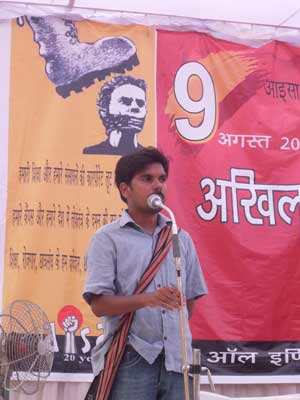 Convention, AISA activists in Allahabad, defying the orders of the administration, successfully managed to hold the convention outside the union hall. Ramayan Ram, State Secretary of UP AISA conducted the morning’s proceedings.
Convention, AISA activists in Allahabad, defying the orders of the administration, successfully managed to hold the convention outside the union hall. Ramayan Ram, State Secretary of UP AISA conducted the morning’s proceedings.
At the outset itself, Ravi Rai, AISA’s National General Secretary, welcomed the assembled delegates and called the speakers for the day to the stage. The guests included Prashant Shukla, one of the founding members of AISA, currently a faculty member in BHU; Sunil Yadav, student leader in BHU in the 1990s and subsequently National General Secretary of AISA; Girija Pathak, an AISA activist who was elected president of the Kumaon University students’ union in 1993; Kumudini Pati, one of the key activists of the Progressive Students’ Organization which preceded AISA and Vice-President of the Allahabad University Students’ Union in 1983-84; Mohammed Salim, National President of the Revolutionary Youth Association; Pranay Krishna, President of the JNU Students’ Union in 1993 and presently 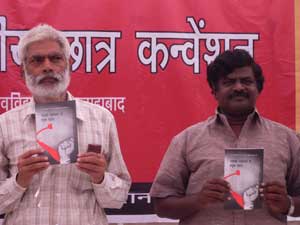 General Secretary of the Jan Sanskritic Manch; V. Shankar, AISA’s national president in 1997-98; Indiresh Maikhuri, former national president of AISA; and Ramji Rai, former student leader of PSO and now Polit Bureau member of CPI(ML) Liberation.
General Secretary of the Jan Sanskritic Manch; V. Shankar, AISA’s national president in 1997-98; Indiresh Maikhuri, former national president of AISA; and Ramji Rai, former student leader of PSO and now Polit Bureau member of CPI(ML) Liberation.
A booklet entitled ‘Chhatra Andolan ke Pramukh Padav’ (‘Important Episodes in the Student Movement’) was released commemorating the occasion. It examines and offers a critical evaluation of the students’ movement in India, from the time of the freedom struggle to the present day.
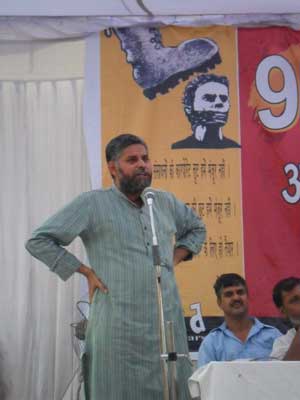 Prashant Shukla recalled how AISA was founded in a period marked by the attack of communal and casteist forces, but had met this challenge head-on. Today, he said, there is an all-out attack facing the young people of the country in the form of commercialization and privatization. Education has become a business to be sold to corporates, it is nothing less than a means for some people to mint money. He pointed to how, when he was a student, there were only some six engineering colleges in the state of UP, whereas there are now over 450 such colleges where there is a complete absence of regulation or any checks and balances.
Prashant Shukla recalled how AISA was founded in a period marked by the attack of communal and casteist forces, but had met this challenge head-on. Today, he said, there is an all-out attack facing the young people of the country in the form of commercialization and privatization. Education has become a business to be sold to corporates, it is nothing less than a means for some people to mint money. He pointed to how, when he was a student, there were only some six engineering colleges in the state of UP, whereas there are now over 450 such colleges where there is a complete absence of regulation or any checks and balances.
In his speech, Sunil Yadav pointed out that if we look today at the university where AISA was founded, then it is evident that not only is there no functioning student union, but there is also a complete absence of campus democracy. What we see reflected in our campuses is also reflected in our country: curbs are being placed everyday on our democracy. He spoke of the plight of the youth of Kashmir who are arrested and tortured daily under AFSPA, many of whom have been murdered or else have disappeared, and whose protests are met by police bullets and the repression of the army. What sort of democracy do we have in our country?, he asked, since when the PM visits Kashmir, curfew is immediately imposed.
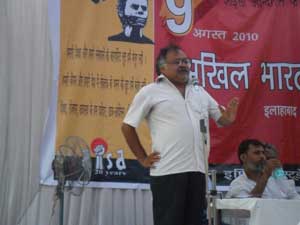 Girija Pathak remembered the initial days of the founding of AISA, and spoke of his pride at having been a part of a radical student movement that has now spread across the country. He spoke of how, today, when the country’s elites are feeding us narratives of India’s greatness, we must speak up for the more than 70% of India’s people who are forced to subsist on less than 20 rupees a day. In keeping with the slogan ‘Lado padhai karne ko, padho samaj badalne ko’, AISA must speak up and struggle for the rights of the ordinary citizen at every point. To do so, will be to prove that the revolutionary student struggle is not dead.
Girija Pathak remembered the initial days of the founding of AISA, and spoke of his pride at having been a part of a radical student movement that has now spread across the country. He spoke of how, today, when the country’s elites are feeding us narratives of India’s greatness, we must speak up for the more than 70% of India’s people who are forced to subsist on less than 20 rupees a day. In keeping with the slogan ‘Lado padhai karne ko, padho samaj badalne ko’, AISA must speak up and struggle for the rights of the ordinary citizen at every point. To do so, will be to prove that the revolutionary student struggle is not dead.
Discussing the undeclared emergency that prevails in campuses across the country today, Kumudini Pati saluted AISA’s attempts at challenging this status quo. The state wants to ban student unions so that no voices will be raised in opposition to their policies of privatization and commercialization. Kapil Sibal’s reforms, she suggested, should be discussed in every campus and students should put forward a blueprint of what kind of education they envision. She cautioned that if we do not assert ourselves against the neo-liberal agenda, it may soon be much too late.
The government of the day, Mohammed Salim emphasized, spends all its time speaking of either Naxalism or terrorism as the greatest threats. But it does not see the great poverty of the country’s people as a challenge or a threat. Neo-liberal policies in agriculture are directly responsible for farmers’ suicides and Operation Green Hunt represents nothing but an attempt to hunt down the dalits and adivasis of our land. With regard to the ongoing preparations for the Commonwealth games, he said that the elite of the country have forgotten the legacy of the freedom struggle and are instead expressing pride at being host to the Queen’s Baton.
Pranay Krishna described how AISA was established at a time when the neoliberal policies had begun spreading their hold and people were quick to proclaim the demise of socialism following the collapse of the Soviet Union. AISA has however challenged these conventions and renewed the demand for peoples’ democratic space. It has sought to change the grammar of student politics by expressing solidarity with peoples struggles across the country. The struggle that we have to wage is a renewed freedom struggle, for a freedom that will have meaning for the most dispossessed of our country’s people.
V. Shankar spoke of how AISA has emerged as a political movement that links student issues with those of the polity surrounding us. He said that Chandrashekhar, rather than Rahul Gandhi or Navin Jindal, should be held up as a model for the youth of today. Chandu is an icon in our struggles against oppression, we have to follow his example in cultivating the same revolutionary spirit as we face the two-fold challenges of communal fascism and imperialist globalization.
Ramji Rai invoked the legacy of Bhagat Singh in asserting the power of youth to give a critique and an alternative to the politics of the Indian ruling class. He spoke of how under the of the UPA, the attack of Liberalization-Privatization-Globalization is growing even stronger. The ruling order wishes to suppress the dreams and aspirations of young people so that there can be no space to struggle. The challenge is to keep alive the spirit of struggle even in these dark times, for without the revolutionary spirit there can be no change in society.
Sandeep Singh, AISA’s national president, gave the vote of thanks.
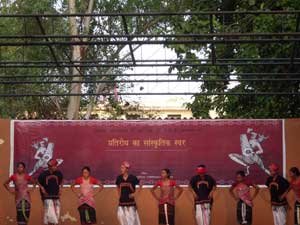 From the afternoon onwards, the second session of the convention saw a multitude of cultural performances by different groups in the premises of the Nirala Delegacy . An array of songs were presented by Hirawal and Bangal Sanskritic Gan Parishad. A dance performance depicting Jhum cultivation was presented by delegates from Karbi. The theatre group from Jamia Milia Islamia, Awam, presented a play entitled ‘Bandi’ dealing with the issues of political prisoners and state repression.
From the afternoon onwards, the second session of the convention saw a multitude of cultural performances by different groups in the premises of the Nirala Delegacy . An array of songs were presented by Hirawal and Bangal Sanskritic Gan Parishad. A dance performance depicting Jhum cultivation was presented by delegates from Karbi. The theatre group from Jamia Milia Islamia, Awam, presented a play entitled ‘Bandi’ dealing with the issues of political prisoners and state repression.
The programme concluded with an evening of poetry marked by the presence of a range of poets including Sahitya Akademi award winner Viren Dagwal, revolutionary poet Ramashankar Vidrohi, Pankaj Chaturvedi, Rajendra Kumar, Harishchandra Pandey, Priyadarshan Malviya, and Ashutosh Kumar.
This year, as we celebrate twenty years of AISA’s existence, we thank all those who have supported us in our ongoing efforts to strengthen the radical student movement in confronting the challenges of our time. We wish to use this opportunity not only to recall past times, but also to introspect and reflect, and to engage with the problems and promises of the student movement in our times and beyond. Many challenges confront us and we must courageously stand up to them in the days to come.
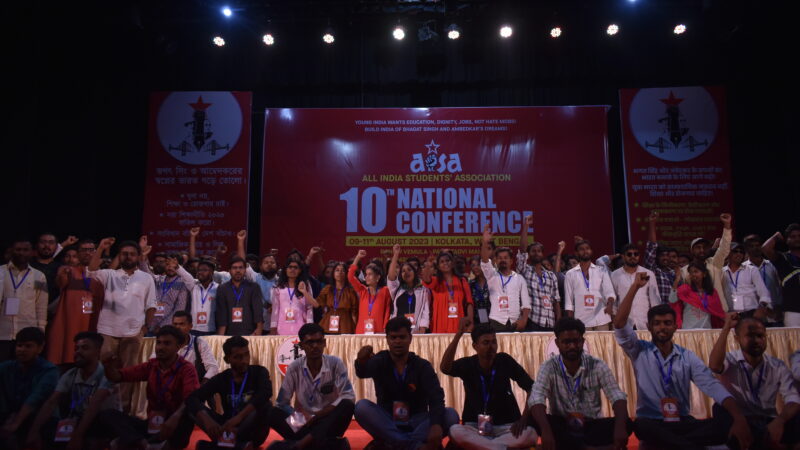
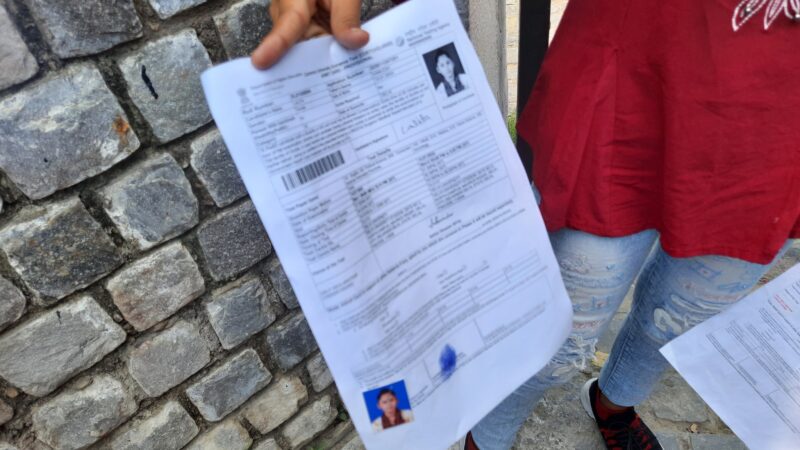
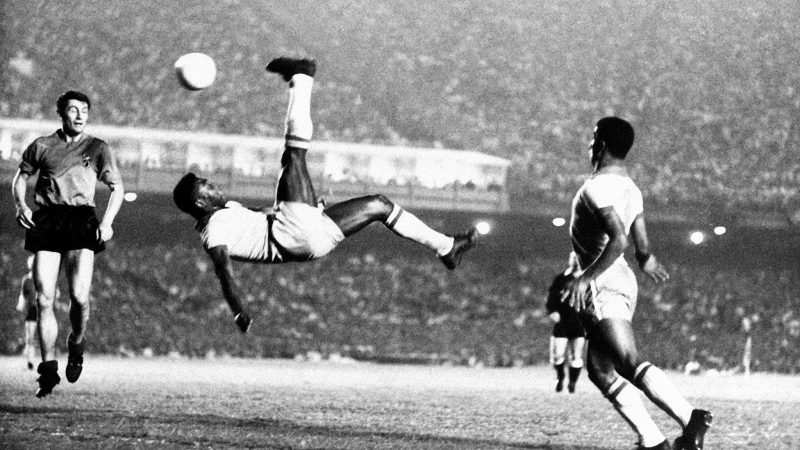
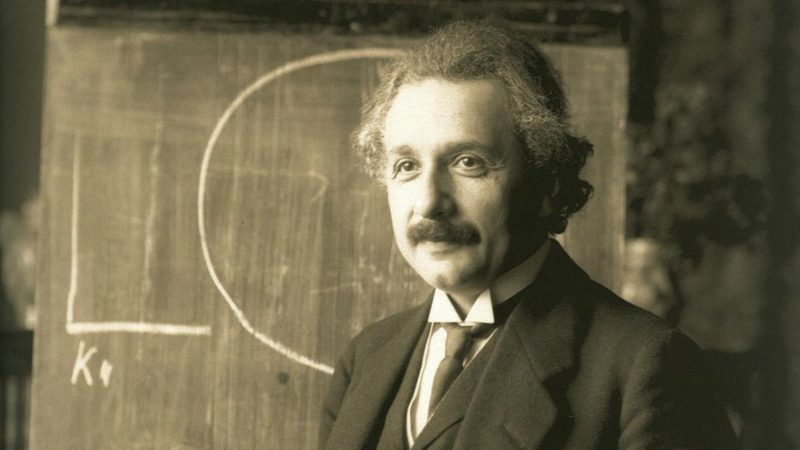
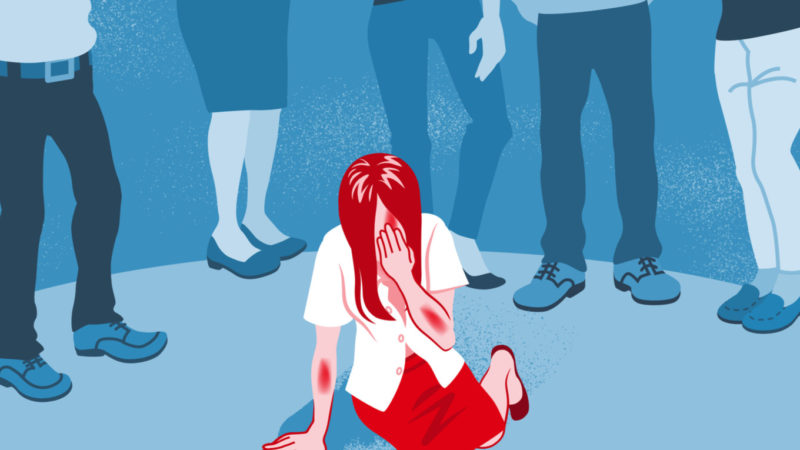
naye suraj ka lal rang hai…aisa aisa
long live students’ movement for the radical transformation of society
Chatr Andolan ki lal aag mein shoshankari… jale hain! jalenge!!
Nayi sadi ka naya Algebra..
AISA AISA…
AISA k krantikari virasat ko LAL SALAM…
Student politics ka naya algebra..
AISA AISA..
champion of expectation of historically victimized section of society
red selut ………..
To all comreds
AISA…… LONG LIVE
AISA KO LAAL SALAAM
INQULAAB ZINDABAAD
YUVA SHAKTI ZINDABAAD
Chhatra Andolan Zindabaad! INQUILAB ZINDABAD!!
– Efficient energy planning: zone, sector and slope. When the ‘counter-culture’ movement was in full swing in the
United States in the late 1960s, many younger people began a ‘back to the earth’ movement in an attempt to draw a closer connection
the land that they instinctively knew sustained them.
The wildlife they are exposed to is often mediated
by technology or educational curriculum that just doesn’t offer the allure of
a virtual world.
AISA HAS A RESPECTABLE POSITIIN IN OUR CUREENT PERIOD OF STUDIES. IT’S REPRESENTATIVE ALSO HAD PLAYED SN IMPORTENT ROLE IN OUR COLLEGE AND UNIVERSITY ATMOSPHERE.